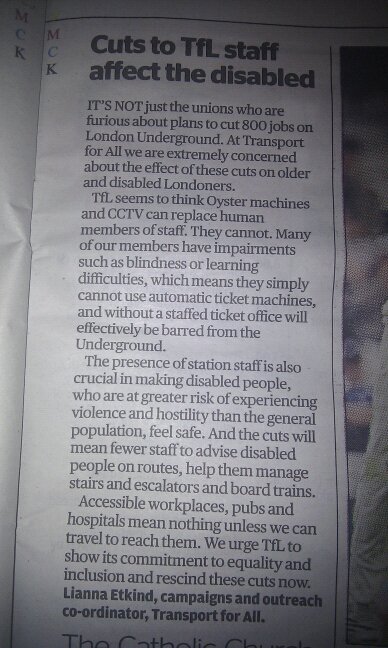RMT Objects as London Underground Claims Staff Cuts Benefit Elderly, Disabled and Other Passengers
Submitted by Janine on 23 December, 2010 - 19:27As a public body, London Underground has to carry out an assessment of the impact of any new policy on various equality issues. The attached file is LU's Equality Impact Assessment (EQIA) for its current OSP (policy of cutting 800 mainly-stations jobs). Below is the response to this document that I have written on behalf of RMT. You will see from this that LU's EQIA falls woefully short, and ignores key equality issues.


 Transport for All, a disability and elderly persons charity has wriiten a letter to the Evening Standard detailing their concerns about front line job losses at London Underground. Lianna Etkind, Campaign and Outreach Co-ordinator of
Transport for All, a disability and elderly persons charity has wriiten a letter to the Evening Standard detailing their concerns about front line job losses at London Underground. Lianna Etkind, Campaign and Outreach Co-ordinator of  Introduction
Introduction
